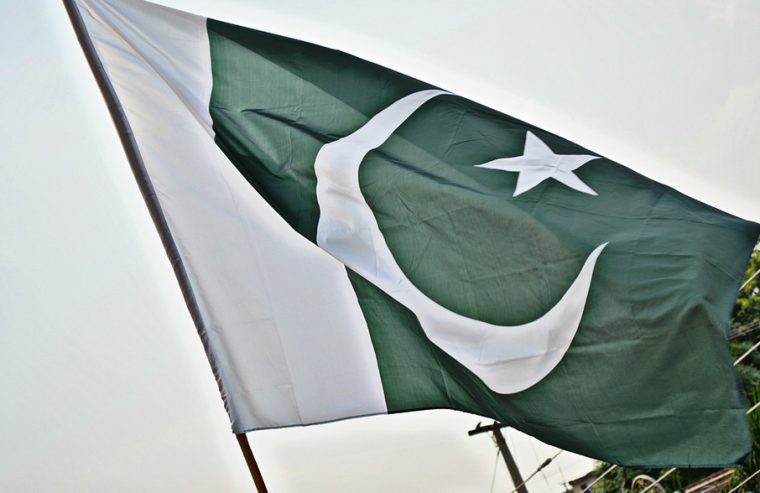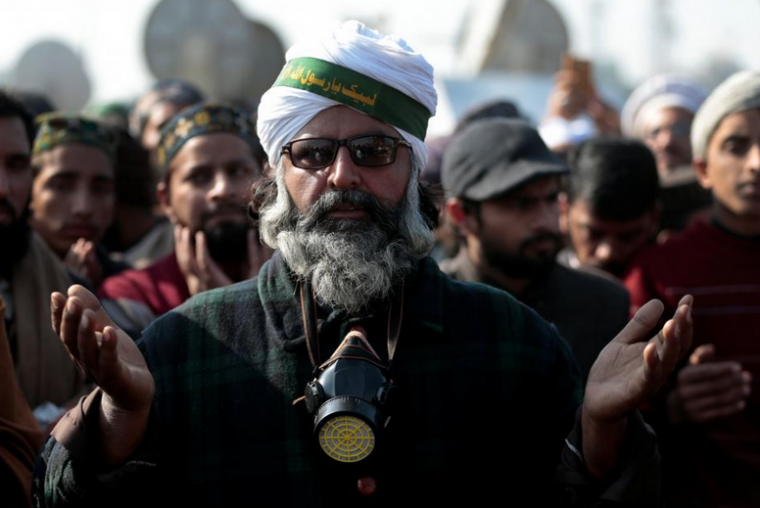Blasphemy crisis and deadly protests: What is going on in Pakistan?
Pakistan, ranked fourth on Open Doors' 2017 World Watch List of the 50 countries where it is most difficult to be a Christian, is in the midst of a blasphemy crisis which has seen violence in Islamabad that left at least seven people dead and hundreds wounded, and protests which spread to major cities across the country including Karachi and Lahore.

An Islamist leader whose group has been clashing violently with Pakistani security forces, leaving Islamabad paralysed for weeks, has today finally called off the sit-in protest today after forcing the law minister to resign, which was the group's key demand.
The deadly controversy revolves around a slight amendment to the oath which election candidates must swear. Now, the government has reportedly agreed to take action against those who were responsible for making changes in the oath about finality of prophethood, known as the the Khatm-i-Nabuwwat oath in the Elections Act 2017.
In October it emerged that in the now abandoned revised form of the oath, the words 'I believe' had replaced the originally drafted 'I solemnly swear' and the clause relating to Khatm-e-Naboowat has not been made applicable to non-Muslim candidates.
The government blamed the change on a clerical error and swiftly restored the original format, but now the minister responsible has gone, and the protests have been abandoned. 'On the assurance of the Chief of Army Staff, we are calling off the sit-in,' Khadim Hussain Rizvi told a crowd of around 2,500 demonstrators from the previously obscure Tehreek-i-Labaik Ya Rasool Allah Pakistan (TLYRA), who have occupied a main highway into the capital since November 6.
This followed reports on state media that the law minister, Zahid Hamid, had had his resignation accepted by the prime minister.

The decision by the ruling Pakistan Muslim League-Nawaz (PML-N) to capitulate to the demands of the protesters underlines the influence of extremist religious groups in the nuclear-armed nation. According to Reuters, Islamist parties are unlikely to win a majority in the elections expected next August, but could play a major role.
The oath row follows a series of recent blasphemy and persecution cases against Christians.
In August, a Pakistani Christian boy was sentenced to death after he was arrested and charged with burning pages of the Quran.
Asif Massih, 18, was taken into custody on August 12 after an alleged incident took place in Jam Kayk Chattha village, near the town of Wazirabad, in central Punjab province.
In October, a Christian boy was reportedly beaten to death by police in Pakistan on Monday in an apparent revenge attack after the boy was in a fight with a Muslim classmate who tried to bully him into renouncing Christianity.
The case follows the killing of another Christian student in August, when Sharoon Masih was beaten to death by at least one Muslim classmate during school hours in Punjab's Vehari district.
The plight of Christians in Pakistan was highlighted in an Amnesty International report taking aim at the country's blasphemy laws last year.
The 'As good as dead' report said religious minorities are often the target of false blasphemy accusations and that Pakistan's blasphemy laws are actually 'emboldening vigilantes' who are prepared to threaten or even kill those accused.
Once accused, victims face a 'gruelling struggle' to prove their innocence as well as continued threats to their life even if the charges against them have been dropped and they have been released from detention, the report said.
Amnesty asserted that little effort is made on the part of the authorities to check the evidence of blasphemy allegations as they bow instead to public pressure from 'angry crowds'. Trials are often 'unfair', the human rights group adds.
'There is overwhelming evidence that Pakistan's blasphemy laws violate human rights and encourage people to take the law into their own hands. Once a person is accused, they become ensnared in a system that offers them few protections, presumes them guilty, and fails to safeguard them against people willing to use violence,' said Audrey Gaughran, Amnesty International's Director of Global Issues.
Specifically, the report drew attention to Christian victims of the country's blasphemy laws which, once again, are in the spotlight today.











